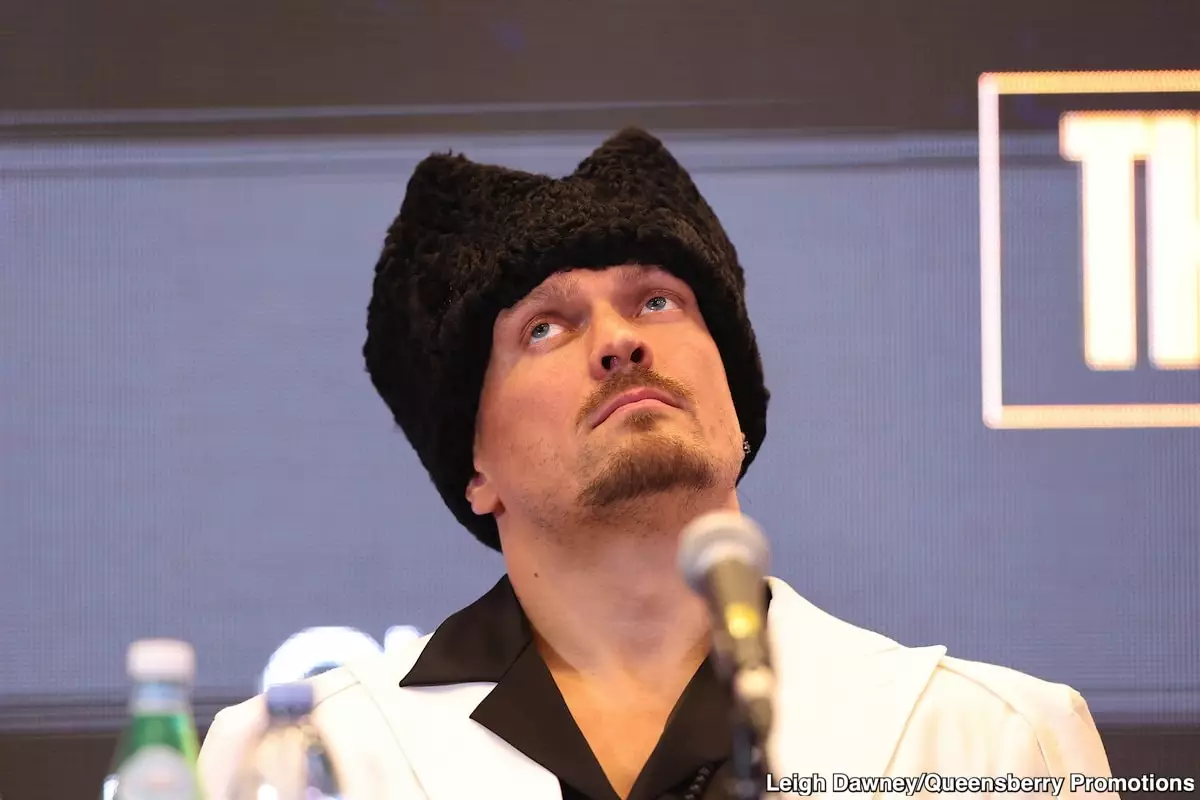Tyson Fury’s latest sparring of words paints a vivid, yet highly exaggerated, picture of the current heavyweight landscape. His outspoken declarations position young talents like Moses Itauma as the inevitable destroyers of the division, dismissing seasoned champions and seasoned contenders with sweeping generalizations. Fury’s enthusiasm, while charismatic, risks distorting the true nature of boxing’s evolution. His narrative suggests that experience and maturity are obsolete, favoring youth as the only path to dominance. However, such hyperbole ignores the nuanced realities that define boxing’s competitive landscape—the skill, tactical intelligence, and mental resilience that seasoned fighters exemplify. Fury’s confident pronouncements might serve as a rousing speech, but they overlook the profound adaptability and resilience of fighters like Oleksandr Usyk, who have repeatedly demonstrated that age is merely a number when skill and intelligence are involved.
The Myth of Youth as an Unassailable Edge
Fury’s assertion that “boxing is a young man’s game” reflects a common misconception often exploited by promoters and fighters eager to build hype. Yes, youth affords certain physical advantages—speed, recovery, and explosiveness—but these are not insurmountable barriers for experienced fighters. Usyk epitomizes this ethos beautifully. His boxing IQ, footwork, and technical mastery elevate him beyond the typical stereotypes of aging warriors. Throughout his career, Usyk has shown that intelligent fighting can neutralize raw power and youth. His victories over heavyweight giants are a testament to strategic brilliance rather than brawn alone. Comparing Usyk to Ortiz, Joshua, or Miller is akin to comparing experience to hype—both have their places, but only one guarantees longevity and sustained success. Fury’s dismissive stance inadvertently underestimates the depth of skill that separates true champions from fleeting flashes of talent.
The Danger of Overhyping Future Stars
While the prospect of Moses Itauma’s rise is captivating, Fury’s overzealous endorsement warrants skepticism. Calling someone “the future” can be a dangerous label, especially when it’s handed out prematurely. History is littered with fighters heralded as the next big thing only to fall short of vaulted expectations. Fury himself has fallen prey to this cycle, heralding fighters like Jared Anderson as “the future,” only for their momentum to falter. This pattern suggests that excessive hype often does more harm than good—placing unnecessary pressure on fighters and obscuring their actual readiness. Itauma may indeed be promising; his size, power, and ferocity mark him as a notable contender. Still, declaring him capable of demolition without facing top-tier veterans risks setting unrealistic expectations. Development takes time, and the heavyweight division’s true test isn’t early hype but consistent performance against established elites.
Fury’s Prophecies versus the Reality of Heavyweight Dominance
Fury’s depiction of the heavyweight scene as one led by the young and the raw dismisses the deep-rooted victories of fighters like Usyk, who have consistently outstrategized and outclassed his opponents. Fury’s own career exemplifies the importance of tactical evolution—something his vocal predictions seem to ignore. The notion that “Usyk isn’t Luis Ortiz” is accurate, but it’s also irrelevant; Usyk’s pedigree and proven ability to adapt and outthink opponents eclipse the idea of being ‘just another’ veteran. The heavyweight division’s landscape is less about raw youth and more about mental toughness, fight IQ, and adaptability. Fury’s tendency to frame his narratives as definitive truths risks overstating the importance of youth while neglecting the skills that truly define champions. His pronouncements could serve as motivational, but they are far from their own proof—what’s needed are real matchups, real performances, and an acknowledgment of the complexity that defines elite boxing.
The Danger of Swallowing Hype Whole
Many newer fans and analysts accept Fury’s bold declarations as gospel, but it’s crucial to approach such statements with discernment. Celebrating a young fighter’s potential is justified, but elevating them prematurely can distort the division’s competitive integrity. The heavyweight division is a mosaic created by fighters of differing ages, styles, and experiences—each bringing something unique to the ring. If we allow hype to overshadow substance, we risk creating a culture obsessed with instant gratification rather than long-term excellence. Fury’s praise for Itauma reflects confidence, but true greatness is forged in battles with champions who have refined their craft over years. The division’s future is promising, but patience and realism are essential. Overhyping unproven talents only sets the stage for disappointment—something Fury might be unknowingly fueling with his unrelenting blast of optimism.
In the end, Tyson Fury’s declarations serve more as entertainment than an accurate reflection of the heavyweight division’s realities. While youth and power are compelling traits, boxing’s true champions are defined by resilience, intelligence, and adaptability. Usyk’s proven mastery and history of triumphs overshadow Fury’s optimistic predictions, reminding us that greatness isn’t handed out in predictions—it’s earned in the ring. As fans and critics, embracing a balanced perspective—celebrating potential without forsaking realism—is paramount to appreciating the sport’s true depth and richness. The heavyweight division remains multi-dimensional, where experience often outperforms hype, and the future still belongs to those who prove themselves over time, not just over social media soundbites.

